How is the NCP's 'new political settlement' faring?
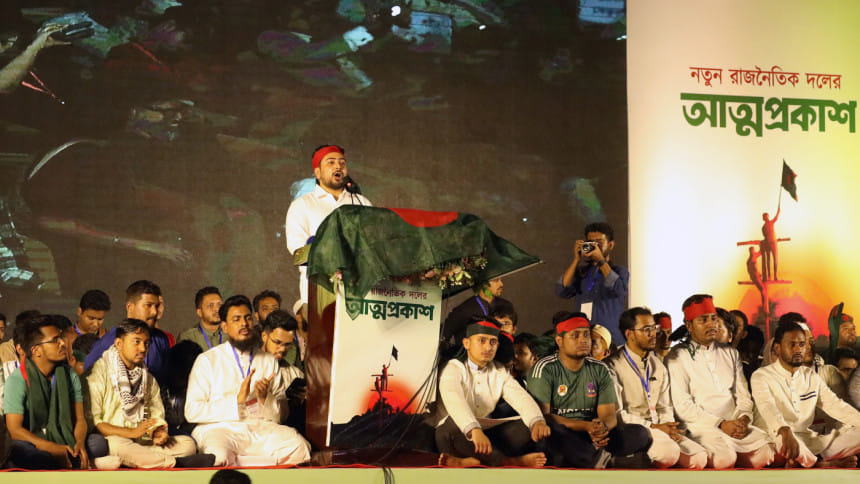
With the promise of a "new political settlement," the National Citizen Party (NCP), a political party formed under the leadership of July uprising coordinators, was launched on February 28 this year. Having been freed from more than 15 years of autocratic rule, the people of Bangladesh dreamt of a new nation—an equitable one. In this context, NCP's emergence carried a special significance. At NCP's debut, thousands of people gathered at Manik Mia Avenue in Dhaka. Addressing the event, NCP Convener Nahid Islam declared his party would be democratic and equality-based—a party that would represent the people. That message sparked a new sense of hope even among the "apolitical" educated middle class.
Three months have passed since then. During this time, the NCP has been working to form committees at district and sub-district levels. Some leaders have held public gatherings in their respective localities. The party has already launched youth and labour wings, and efforts are underway to form more professional wings, including for doctors and engineers. It is also working on forming the NCP Diaspora Alliance to include expatriates. Membership drives and other party programmes are taking place across the country.
But in these three months, has there been any sign of a new political settlement?
Already, allegations of some NCP leaders having a lavish lifestyle have sparked controversy. In some cases, said leaders have provided explanations, but doubt remains as to how credible those explanations are. During Ramadan this year, NCP hosted an iftar party at a five-star hotel in Dhaka. This raised questions as to where a newly formed party obtained the funds from to organise such a luxurious event. Questions have been raised regarding its expenses associated with the party office at Banglamotor. In both cases, the NCP leadership has not provided any satisfactory explanation.
In three months of its existence, the party has yet to demonstrate what it has done differently from the traditional political framework.
NCP chief Nahid Islam has also been called out for his activities—or lack thereof. As the leader of a new political party, he was expected to engage broadly with the masses. Instead, he has mostly been seen either attending meetings at the party's Banglamotor office or posting on Facebook.
Sarjis Alam, NCP's chief organiser for the northern region, was criticised for staging a show of force with a motorcade of over a hundred vehicles in his hometown of Panchagarh. Dr Tasnim Zara, the party's senior joint member secretary, asked about the matter in a Facebook post. In response, Sarjis made a counter-post explaining the situation, also adding that the political arrangement they envision, if implemented within six months, could result in losing election deposits in 95 percent of constituencies.
Opinions vary on whether Sarjis's explanation is reasonable or acceptable. Questions were also raised about why these two leaders chose to post on Facebook instead of discussing the matter in person. Some, however, took the public questioning positively as this has not been seen in Bangladesh's politics before.
Recently, Sarjis made Facebook posts mocking a statement by a senior BNP leader. NCP leaders have previously been seen putting up posts, counter-posts on Facebook. Seeing as political rebuttals and derision over statements have been commonplace in Bangladesh—albeit not on social media platforms—is the NCP not following conventional practices?
One may disagree with someone else's opinion, and it is perfectly possible to express one's disagreement without resorting to sarcastic posts.
Recently, NCP's Senior Joint Chief Coordinator Abdul Hannan Masud drew flak for intervening and getting three individuals, who had been detained following an altercation with police, released. Later, the party issued a show-cause notice to him, but it was withdrawn when Hannan acknowledged his error. Previously, Hannan's formation of a committee at Mongla port and his use of a luxury vehicle came under scrutiny as well. Regarding the car, he stated it was lent to him by a pro-Jamaat-e-Islami businessman.
Former NCP leader Gazi Salahuddin Tanvir was accused of influence-peddling and corruption. NCP temporarily suspended him and served a show-cause notice to him in April.
All these incidents have negatively impacted the NCP's public image. A few resignations in such an early stage of the party have also sown seeds of doubt.
From the outset, NCP has positioned itself as a centrist party. Yet, there remains no clear indication of how leaders from differing political backgrounds or ideologies will operate together under one umbrella.
For example, criticism arose when two NCP leaders participated in a rally that opposed the Women's Affairs Reform Commission. At that time, there was no immediate response from the party. A statement was eventually released, but it failed to clearly articulate the party's stance. Moreover, the party has not expressed a strong position on recent social and cultural issues—despite public expectations that they would be among the first to raise their voice in resistance, given their commitment to building a fair and discrimination-free Bangladesh.
Varying positions of NCP leaders on different issues have further fuelled public uncertainty. For instance, at a Hefazat-e-Islam rally where controversial remarks were made about women, three of the six women who issued a legal notice against Hefazat were NCP members. Yet, two NCP leaders had also attended that same rally. Similarly, when Narir Dake Moitree Jatra (Solidarity March at Women's Call) was held on May 16, some NCP leaders posted on Facebook opposing the event, while others supported it. These instances led to confusion regarding NCP's stance as a political party.
However, it is also possible that the party is attempting to establish a democratic practice in which no single view is imposed on anyone. From that perspective, it could be seen as a positive development. According to the NCP charter, which is set to be unveiled soon, the party is prioritising internal democracy.
Many have alleged that the two student representatives on the advisory council, Asif Mahmud Shojib Bhuiyan and Mahfuj Alam, are part of the NCP. However, Nahid Islam has repeatedly claimed the two have no connection with the party. However, NCP leaders have long-standing ties with both Asif and Mahfuj. They worked together during the July-August movement. When it comes to those who played intellectual roles behind the scenes during the movement, Mahfuj's name comes up first. According to NCP, if Asif and Mahfuj decide to participate in politics or the election, they will have to resign from their government jobs. If they contest the election, it will likely be under the NCP banner. So, no matter how strongly the party distances itself from these two student advisers, people have a fair understanding of the real dynamics at play.
NCP must realise one thing: they won't garner public support across the board, regardless of ideology or party affiliation, simply because they are a political party. Yes, the current NCP leadership led the July uprising. But NCP did not exist back then. The movement wasn't carried out under any party banner, which is why people from all walks of life came together to take part in it. NCP leaders played a key role in the uprising, but so did nearly all other student organisations except Chhatra League: Chhatra Dal, Chhatra Shibir, Chhatra Odhikar Parishad, Chhatra Union, and other left-wing student groups. Also central to the movement was the public's accumulated anger from years of suppression by an autocratic regime.
Therefore, the NCP has no reason to assume that, like in July, the public will respond unanimously to their calls now. The proof of this was seen during their recently organised protest at the Election Commission. To survive in politics going forward, they must win the hearts and the confidence of the people.
More importantly, by invoking the idea of a new political settlement, the NCP has generated high expectations, which must be met with action—action that appears to be missing so far.
That said, the NCP still has time to engage with people. While the exact election date is still not confirmed, it is clear that it will take place between December, 2025 and June, 2026. Based on this time frame, the party should be far more active than it currently appears to be. NCP leaders must look beyond holding meetings at the party's central office or organising occasional rallies. To build the party, they must reach every corner of the country—even the most remote areas, if necessary. Otherwise, engaging in national politics will remain a difficult endeavour.
On February 28, in the presence of well-wishers, supporters, and leaders from other political parties at Manik Mia Avenue, Nahid Islam said, "Now is the time to dream anew, to chart a new path, and to build a new Bangladesh." The people of Bangladesh also believe in those words and are nurturing that dream in their hearts. But to lead to that new Bangladesh, the NCP must focus on truly building the new nation they speak of—not merely delivering eloquent words.
Sadi Muhammad Alok is a journalist at The Daily Star.
Views expressed in this article are the author's own.
Follow The Daily Star Opinion on Facebook for the latest opinions, commentaries and analyses by experts and professionals. To contribute your article or letter to The Daily Star Opinion, see our guidelines for submission.
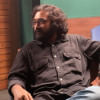
 For all latest news, follow The Daily Star's Google News channel.
For all latest news, follow The Daily Star's Google News channel. 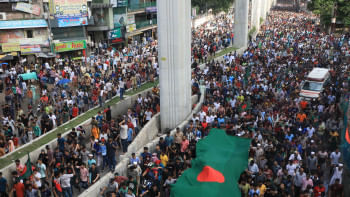
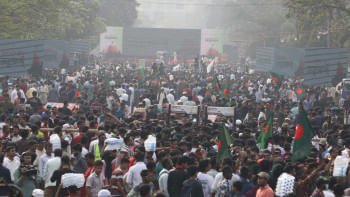
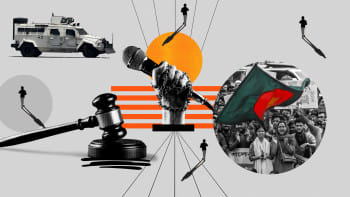





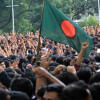



Comments